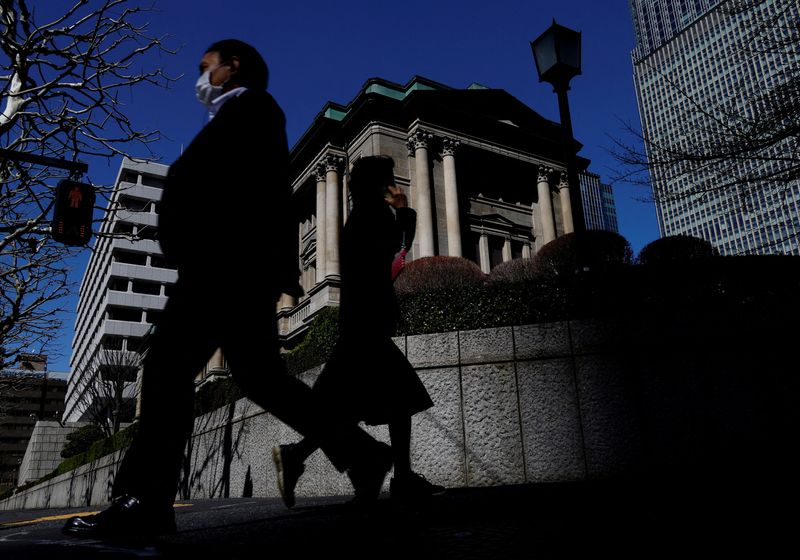TOKYO (Reuters) -Japanese banks have improved their resilience to rising interest rates by rebalancing domestic bond portfolios but growing real estate exposure poses a potential risk, the Bank of Japan said in its report on the financial system on Thursday.
The BOJ’s latest analysis of risks in the financial system comes after the central bank ended eight years of negative interest rates last month, a historic shift away from its focus on reflating growth with decades of massive monetary stimulus.
All types of banks have shortened the duration of their yen-denominated bond holdings, reducing interest rate risk especially in the longer-term zone, the BOJ said in its semi-annual report.
Banks’ credit costs remain subdued despite an increasing number of corporate bankruptcies driven by labour shortages, because small-sized firms account for the overwhelming majority of recent bankruptcies, it said.
The report also noted that from a macro perspective, an improving economy and the resulting rise in interest rates can be expected to lead to an improvement in household income and the interest-related balance.
Overall, Japanese banks have sufficient capital and stable funding bases to withstand various types of stress, the report said.
Among potential risks, the BOJ cited banks’ growing real estate-related exposure, built up particularly in metropolitan areas.

While Japan’s real estate market has been solid with limited office vacancy rates, foreign investors, who had been active buyers in Japan, became net sellers in the second half of 2023 for the first time in four years, the report said.
As the delinquency rate for office loans has continued to rise in the United States, close attention should be paid to the possible impact of changes in foreign real estate markets on Japan via foreign investment funds, it said.
To read the full article, Click Here

